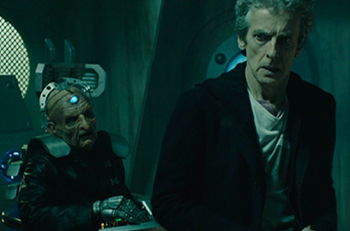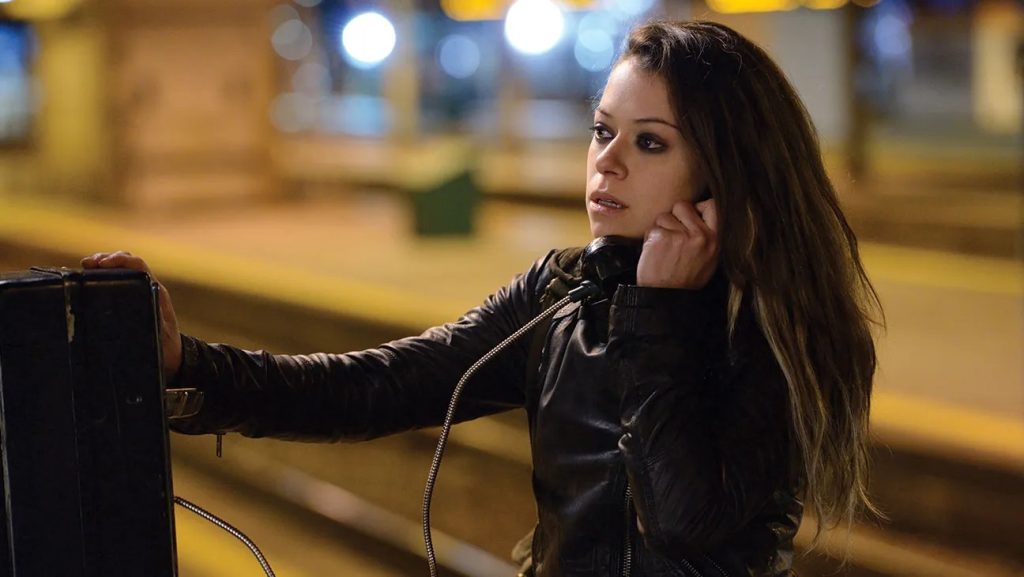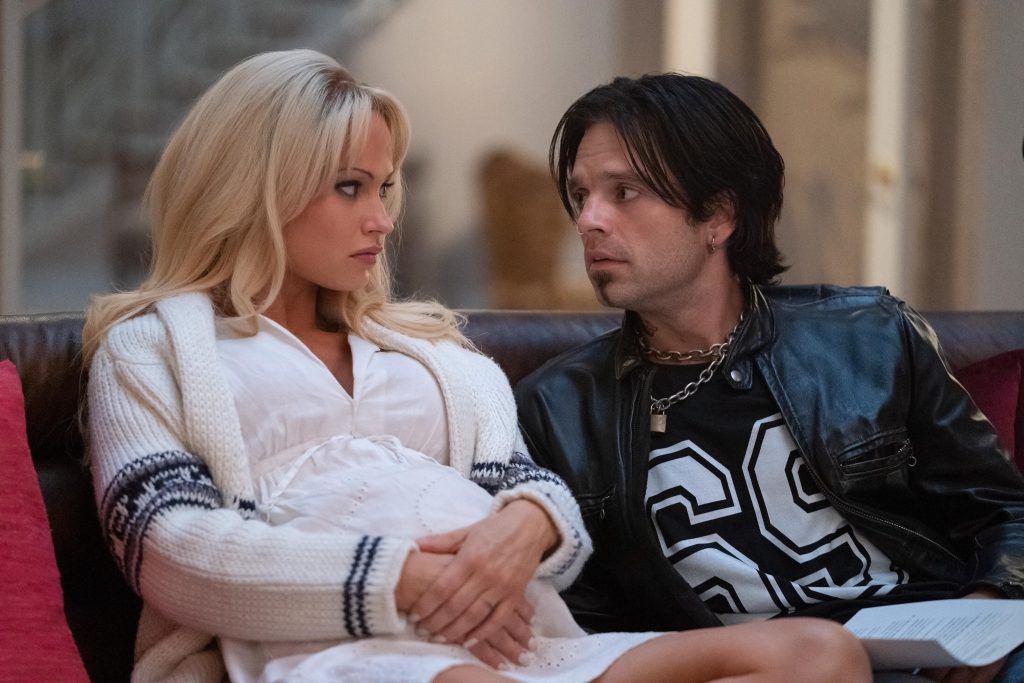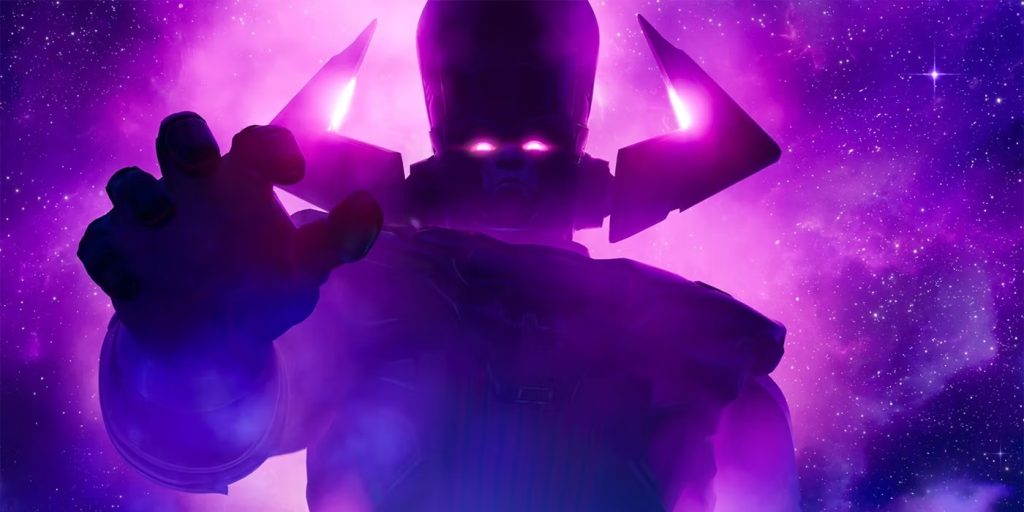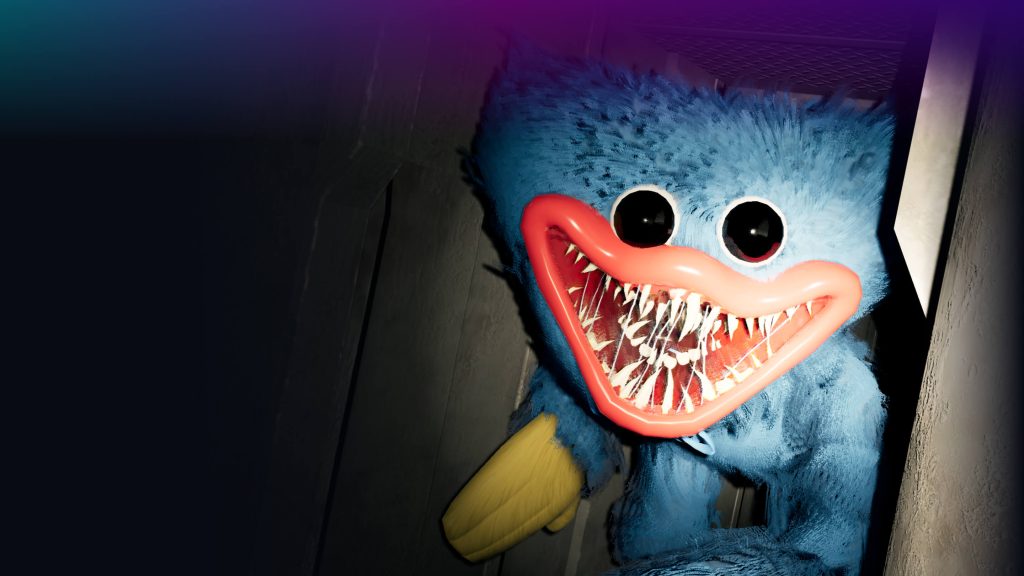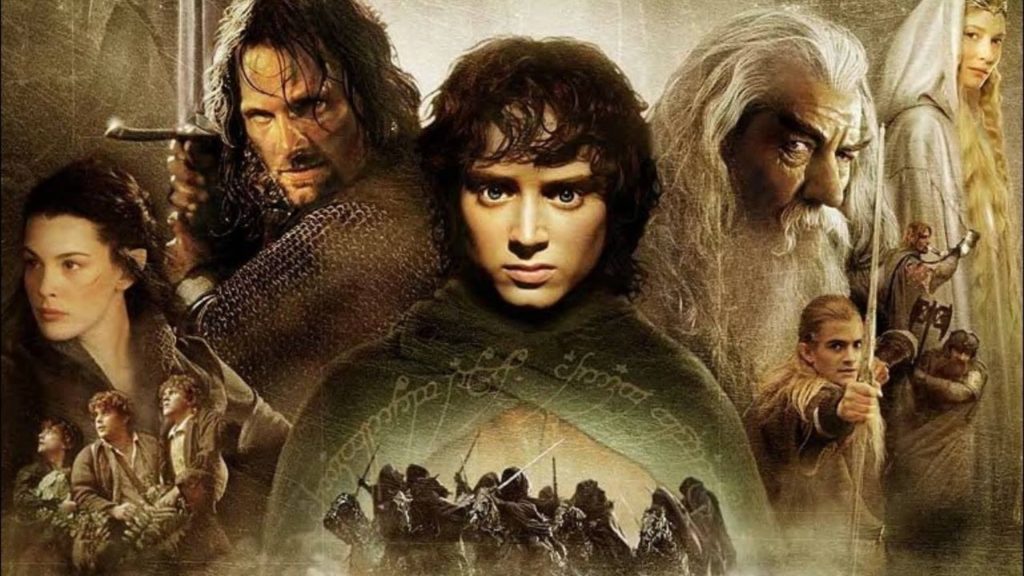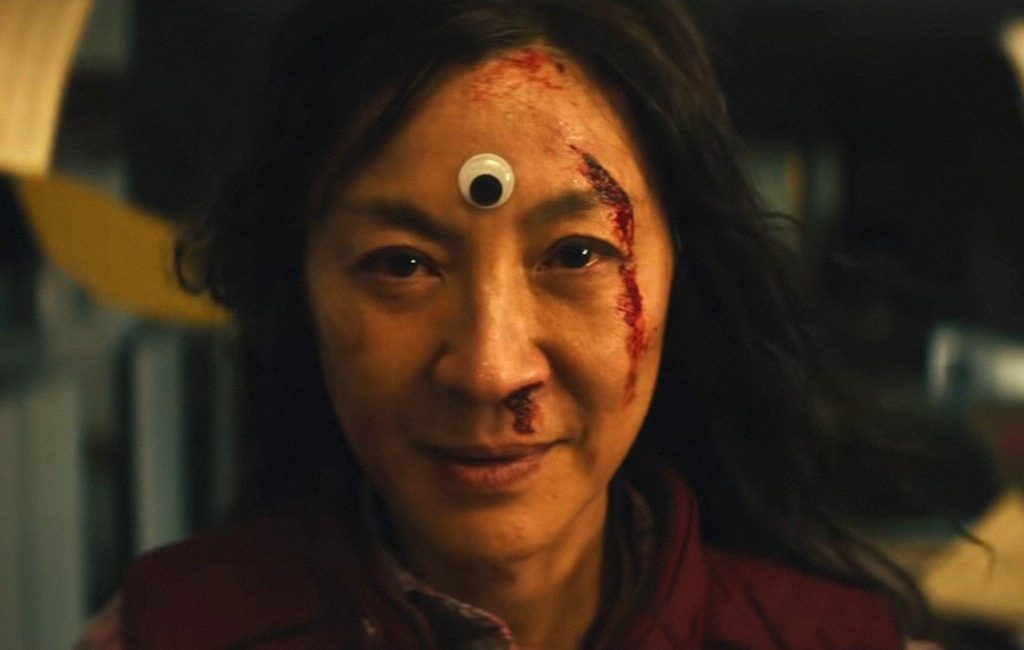
The Witch’s Familiar was, in many ways, the absolute paradigm of a Steven Moffat episode, a perfect metaphor for his relationship with Doctor Who and, by extension, its fans. And just as it showcased all the best elements of Moffat’s Doctor Who writing and showrunnership, so it was also a vehicle for some of his greatest flaws.
It was a pretty audacious thing to do, a sequel to Genesis of the Daleks on its 40th anniversary, but Moffat is no stranger to audacity and with episodes like Listen and The Day of the Doctor (not to mention The Name of the Doctor) under his belt, the story that took the series’ most iconic creation and turned it into something mythical would appear to always have been his destination. Did you need to have seen Genesis of the Daleks to get what was going on? Not a bit of it; everything you needed to know was up there on screen throughout this week and last’s episodes, and the twist that Moffat threw in made the story entirely relevant too, rather than just being a rehash of four decades old soup for the sake of it. Last week I asked if writing a sequel to that story is something Steven Moffat should be doing, and although he proved his worth in the scenes between Davros and the Doctor, in fact he neatly sidestepped the issue by making this no more of a sequel (in spite of the bookending scenes with the young Davros) than Revelation of the Daleks was; a development, maybe, but not a direct follow-up by any means. The young Davros was something of a misdirection, then – which is perhaps where Moffat’s problematic side began to creep in.
Because there was so much about these two episodes that was unnecessary, and that in the end either deflected attention away from deficits that might have been improved by a greater concentration on getting them right, or – if you’re watching out for these things – served to draw attention to them. The use of the sewers (or “mortuary”) as a means of resolving the Daleks’ new ascendency felt pat in the way Moffat’s resolutions sometimes can, when something fairly innocuous is slipped into the mix and then brought to importance in such a way. There are times when this can be brilliant and breathlessly executed; here, using one of the features of the Daleks’ very first story in such a way – updated to give it a new angle that’s somehow both at odds with and yet perfectly in keeping with its original use; those lakes outside the Dalek city, into which these sewers surely run, have always been home to the Daleks’ hideous unmentionables – feels like fan service more than it does a logical way to stay off a Dalek victory. Moffat’s justifications for the Daleks’ repetitive speech patterns was much more successful, feeling both logical and justified – and very much in keeping with his usual modus operandi. It’s always been obvious that he’s avoided writing the Daleks because of the way their dialogue doesn’t gel with his snappier approach; in this scene he managed to retroactively make the Daleks seem both more plausible and more witty, and it was a delight to see.
The Witch’s Familiar was a two-hander, of course, between the Doctor (the most familiar character in the series) and Davros, behaving at his most witch-like, and toying with our hero. And although there was a nice double-meaning in the way Clara became Missy’s pet, in the end those two characters were almost entirely irrelevant to the unfolding story, ultimately having very little effect except on its coda – albeit providing a beautifully symmetrical irony as the Daleks, far from inheriting something of the Time Lords’ regenerative powers, instead ended up absorbing only the Doctor’s concept of mercy. Once again an example of Steven Moffat retrospectively ironing out one of the series’ unremarked upon little wrinkles. It’s a shame to see Missy “wasted” in this way (Gomez was incredibly good value for her screen time, as per usual), although it felt very much like we were being prepared for something about her that won’t pay off until the climax of the series (the Doctor’s pocketing of his will and a mention of hell foreshadowing that eventuality). It was also a nice call-back placing Clara inside a Dalek for much of the episode, almost as if Steven Moffat couldn’t resist going back to give Asylum of the Daleks a retroactive happy ending too.
Obviously, it was in the scenes between Julian Bleach and Peter Capaldi that Steven Moffat proved his mettle, taking Davros to places that we’d never seen before while simultaneously staying true to the character as we’d understood it, and in a genuinely emotionally resonant manner – particularly given the character’s about-face later on. Bleach was simply riveting, and Capaldi all but matched him, but for the stronger material that Bleach was given. This was the heart of the story, and while it was a shame that it unbalanced the two-parter in favour of the second episode, it was perhaps a wise decision as the scenes between the two very nearly stopped the story dead in visually dynamic terms. If the dialogue and performances hadn’t been as strong as they were, Moffat would have been tempting fate by straying into the sort of extended confrontational areas that occasionally unbalanced some of Russell T Davies’ less well-paced episodes. The Witch’s Familiar just about got away with that, mostly due to the cutaways to Missy and Clara elsewhere.
I said this was a metaphor for Steven Moffat’s relationship with the series and its fans, and that’s because the writer has a predilection for using the series’ history both to his advantage – in ways that fans of the original series often see as heresy – but in a manner that pays homage or shows deference to the classic series – in ways that fans of the original often miss. So here we have Davros behaving like a Russell T Davies creation, shedding tears and opening his eyes (heresy!), only in order to distract the attention away from the plot he’s silently weaving around the Doctor, a plot of incredibly Machiavellian proportions and entirely fitting for the character. And that’s Moffat in a nutshell, at once respecting the classics with his irreverence. It’s a shame that the final revelations – “It was all a dastardly plot!” “I know it was, and while you were dastardly plotting so was I!” – is a reminder above all else of The Curse of Fatal Death (complete with its Dalek sewers). Steven Moffat likes nothing better than pilfering his own ideas, but this one was perhaps too arch for a story of such import and helped only to undermine it.
It’s impossible to tell without a little time and context to view it through, whether this opening two-part story of Series 8 will ultimately be held in such high regard as the Season 12 story that ostensibly spawned it, but from this position it looks very much like a worthy successor. Genesis of the Daleks is a classic in spite of its Terry Nation longueurs and some rather obvious padding (not to mention the author’s favourite tropes getting yet another day in the sun; never a problem if they’re worth watching), and Steven Moffat’s story is despite its elongated opening instalment a much more concise and direct narrative. Although its plot might not ultimately possess the gravity of Nation’s original, it has instead a far greater cheek and a more defined self-awareness – and it is, moreover, possibly the best series opener since Doctor Who’s return in 2005. There’s a huge difference in approach between the two, but given the 40-year gap between them (more than 50 between this and the original Dalek story that it also overtly references), it’s amazing how much of a piece they feel. Time will tell, but this is a strong opening and the two-part nature of The Magician’s Apprentice and The Witch’s Familiar is a welcome change of pace, one that we’ll have to get used to experiencing again.

